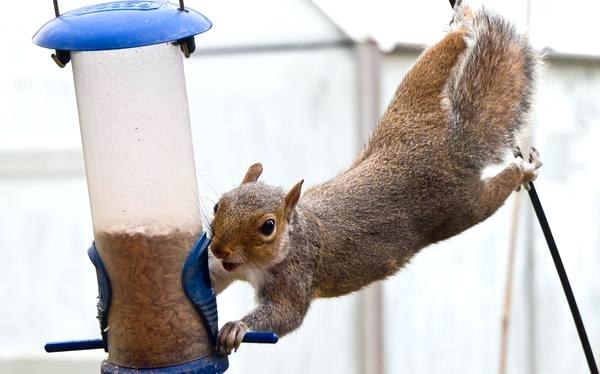When most people experience a growth in the squirrel population around their house, they consider contacting a squirrel removal service or wildlife control in Madison. However, some curious animal lovers welcome the extra neighbors, even believing the animals remember and care about them.
It is true that squirrels are intelligent and can recognize humans they see as food sources, but that does not mean an emotional connection or bond. The apparent docile nature of squirrels is more likely due to humans encroaching on the animals’ natural habitat.
According to some research, squirrels understand the purpose of footpaths. The animals have been observed remaining in the grass near pathways with people walking, only returning to the trees when people stare or step onto the grass.
Squirrel Intelligence and Memory
Squirrels are intelligent animals that have demonstrated extraordinary working memories. An experiment at the University of Exeter showed grey squirrels solving tricky problems to find a hazelnut reward. Two years later, the same squirrels remembered how to solve the problem.
The creatures also express ideas and emotions to each other through a complex “language.” The language uses multiple sounds and intonations to describe a multitude of ideas.
Additionally, the animals use deceit to trick other foragers and squirrels. Studies have found that squirrels will pretend to dig and hide nuts only to hide the real nuts later, in private. Other studies have proven that squirrels store their food in chunks or clusters and remember where they hid it later.
Because of the animal’s intelligence and memory, it is not surprising it can remember friendly humans and those who offer food. Squirrels appreciate a predictable food source and will happily return again and again to the same individual.
Squirrel and Human Connection and Tolerance
In rural areas, you will not find many squirrels willing to come into close proximity with humans, but in urban areas, squirrels have grown accustomed to relative closeness with people. The closeness to humans and the continued encroachment of wildlife’s natural habitat means city squirrels are more comfortable with their human neighbors.
The closeness has resulted in cases of people fostering orphaned squirrels, and squirrels becoming accustomed to hand-feedings. While there are rare instances of fostered squirrels returning from the wild to reconnect with their human family, more often than not, wild squirrels do not form intimate or personal connections with people.
People often mistake hand-feeding as a form of closeness or bond, but the reality is simpler: squirrels allow hand-feeding because they view you as a reliable food source. A squirrel will put up with a lot to ensure a healthy meal.
Squirrels and Risks To Humans
While people become attached to the squirrels and wildlife they feed, the feeling is not often reciprocated. A tame wild squirrel is still a wild animal, and it may bite or scratch you if it feels threatened. The animal might even bite you by accident if you are attempting to hand-feed it.
As with any wild animal, squirrels present an inherent risk to humans. The animal can have infections, diseases, and illnesses that are either transmissible to people or alter its mood and stability.
As cute and friendly-looking as squirrels are, they are not a pet. The species should be treated with respect and admired from a distance. While it is tempting to feed the animal, most wildlife experts recommend you don’t. However, if you do, only provide raw and unsalted nuts and seeds.
If you have several squirrels around your house, especially if you have noticed them on your roof, or climbing your property, you should contact Skedaddle Humane Wildlife Control. When squirrels get comfortable around a structure, it is not long before they start looking for ways inside.



